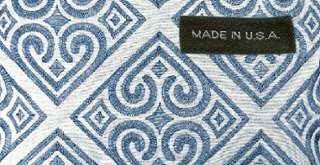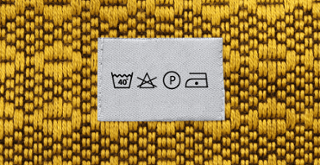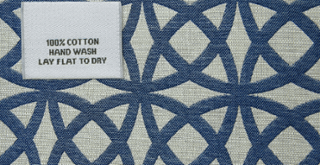UX designer is a pretty hot job title right now, and one which is set to become even more popular. CNN ranked it fourteenth in their top 100 jobs list, stating that the number of UX design positions is likely to rise by 18% over the next ten years.
It came seventh in Forbes list of top 20 jobs for work-life balance. A study by the Nielsen Norman Group also found that UX designers love their work — respondents rated their career satisfaction as 5.4 on a scale of 1–7.
However, as a discipline which is still in it infancy, many people aren’t really sure what qualifications are required to work in the field. Before I looked into a career in UX design, I assumed that anyone with the word ‘designer’ in their job title must have a degree from an art school.
However that is simply not the case. UXers come from a wide range of backgrounds, from psychology to project management — you can read about my path here!
So, do you need a qualification to work in UX? Read on to find out!

Do you need a UX design certification?
The short answer is no, and many employers won’t want to see your certificate — it’s more about proving you have the skills. Also, there are plenty of people out there who have fallen into UX through other career paths, and as such they were never formally trained in it.
If you are a really determined, you could teach yourself UX by reading blogs, books, or learning on the job. It really depends how much related experience you have and whether you would be able to demonstrate your ability in an interview without having a qualification to back you up.
There are also various free online courses such as Springboard and paid online courses such as Pluralsight. However if you are the average person prone to procrastination (like me), you will be likely to benefit from a course with a structured learning environment, where you have an allotted amount of time to complete it and regular contact with a mentor or tutor.
In terms of which structured course to take, again, there are lots of different options. General Assembly is probably the most famous. Providers such as Akendi offer classroom-based week-long short courses — although it is pretty tricky to learn everything there is to know about UX in one week.
Then, of course, CareerFoundry, gives you the best of both worlds — you have the convenience of studying at home as well as weekly catch up Skype calls with a mentor.

Which skills make a good UX designer?
The skills that a UX designer uses are really varied and most people are surprised that UX design is less about being a stereotypical creative type and much more about soft skills.
Obviously you need to be comfortable sketching and wireframing (although I was terrible at this when I started), but it is more important to have skills like empathy, enthusiasm, time management, good communication and ability to negotiate. Awareness of how businesses work is critical too, especially being able to ask the right questions to elicit answers around what the client is trying to achieve.
But, the most important skill of all? Problem solving.
CareerFoundry was created in order to solve a problem that the founder, Raffaela Rein, had experienced. She wanted to move out of banking and into tech but couldn’t find the right course to suit her needs.
UX guru, Sarah Doody also recommends looking for problems in your everyday life, to help hone your problem solving skills. If you’re a natural problem solver then you will probably make a great UXer!

So, how will a UX design qualification help you?
There are many benefits to a UX design qualification such as:
- Learn basic UX theory and processes: You will have a solid foundation of UX knowledge without having to search for the information yourself. You don’t know what you don’t know — so it is good that the content has been handpicked by people who have years of UX experience and a good understanding of what you need to know as a UX beginner.
- Surround yourself with a great network of people: Build up helpful contacts, starting with your mentor, tutor and other students on your course. I’m still in contact with Sophie my mentor from CareerFoundry who has been fantastic at introducing me to other people in the UX industry. She put me in touch with her old boss when I moved to New Zealand and also keeps me informed on interesting UX reading. CareerFoundry also have a Slack channel which all students are added to — this is a great way of finding out about jobs and bouncing ideas off each other.
- Build a portfolio: Most courses ask students to choose a UX project and help you build a portfolio as you learn. Portfolios are a requirement for a lot of job interviews, so this is a great way of being able to spend time perfecting your portfolio and also get expert advice on it.
- Get a foot in the door: A qualification will help you get your first interview if you don’t have any prior UX job experience. People will be looking to at your CV and if you don’t have at least a couple of years experience working as a UXer, they will be probably want to know you have completed a related course. Once you have a couple of years UX experience under your belt, you’ll find people aren’t really concerned about your qualification anymore and are much more interested in your work experience.

What will a qualification not offer?
The main thing that a UX design qualification cannot do is help you to feel like you know everything. You won’t wake up the day after completing the course and suddenly feel like you know it all — a UX designer will never know everything!
It is a role which is constantly evolving and part of being a UX designer is keeping up to date with new trends or technologies, and constantly learn new things. Think of the qualification as the starting point of an exciting journey of UX discovery and as you get more experienced, you will become more and more confident. A lot of your skill will come with experience, but that’s not to say you can’t speed up the process by learning from the experience of tutors and mentors.

How can you find out if UX design is right for you?
It’s a common theme in UX design, but before making any decisions — do your research! This will help you to decide if it is definitely the career for you.
Here are some good ways to test the water before you make your decision:
- Get reading: there is a wealth of knowledge on career change and UX on the CareerFoundry blog.
- Check out social media: Twitter and Medium are both great for finding the latest UX articles and UX experts such as Nick Babich and Sarah Doody have great weekly newsletters with handpicked articles. Sarah’s newsletters also have handy trigger questions to help you start thinking like a UX designer.
To sum it all up, UX design can definitely offer an exciting and rewarding career path. A formal qualification can be a great way to get started, learn the basics, stay focused, meet like-minded people, build your portfolio, and get the guidance you need to find your first UX design position. After that, the world is your oyster!
Source: UX Planet
Author: Caroline White

